What Are Chicken Necks For Dogs?
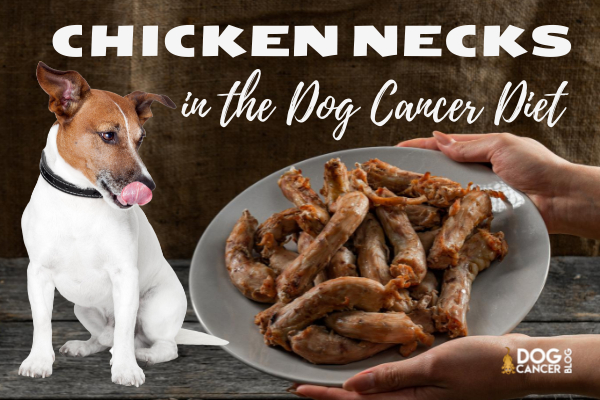
Chicken necks are a popular treat and dietary supplement for dogs. They are a part of the chicken that is rich in nutrients, including protein and calcium. Chicken necks are often offered as a chew treat to help promote dental health by reducing plaque and tartar buildup. Additionally, they can provide joint support due to their natural source of glucosamine and chondroitin. However, it is important to note that chicken necks should be fed in moderation and under supervision to prevent choking hazards and potential digestive issues. Always consult with your veterinarian before incorporating chicken necks into your dog’s diet.
Chicken Necks As A Nutritious Dog Treat
Chicken necks serve as a nutritious dog treat that provides numerous health benefits. Packed with protein, chondroitin, and glucosamine, they contribute to joint health and mobility in canines. These dehydrated treats are particularly beneficial for smaller dogs and can also be enjoyed by medium to large breeds. As dogs chew on chicken necks, they naturally clean their teeth, promoting dental health. Incorporating chicken necks into your dog’s diet offers a tasty and wholesome option for rewarding and nourishing your furry friend. Ensure to feed them in moderation, under supervision, and consult with your veterinarian for specific dietary recommendations.
Risks And Benefits Of Feeding Chicken Necks To Dogs
Feeding chicken necks to dogs comes with both risks and benefits. On the positive side, chicken necks are packed with protein, chondroitin, and glucosamine, which support joint health and mobility. Additionally, as dogs chew on chicken necks, their teeth naturally get cleaned, promoting dental health. However, there are risks to consider. Chicken necks pose a choking hazard, especially for medium to large dogs, and there is a potential link to a higher risk of immune-mediated nerve damage. It is important to weigh the benefits against the risks and consult with a veterinarian for personalized advice on feeding chicken necks to dogs.
Health Benefits Of Chicken Necks For Dogs
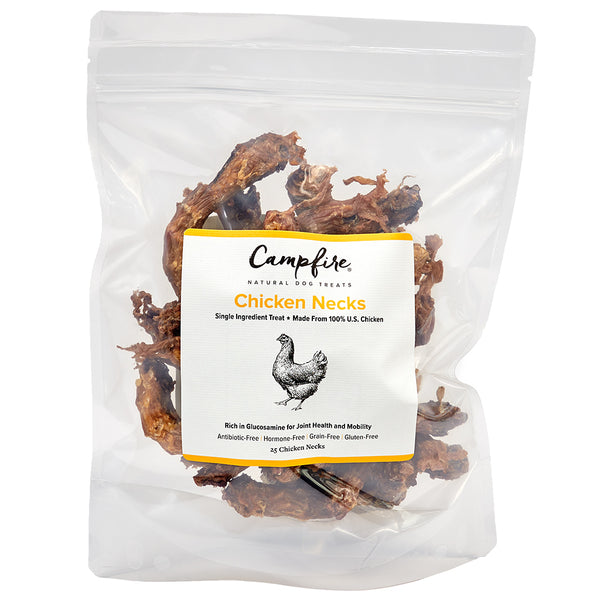
Chicken necks offer several health benefits for dogs. They are a rich source of protein, which is essential for muscle development and growth. Additionally, chicken necks contain chondroitin and glucosamine, which support joint health and mobility in dogs, especially as they age. These nutrients can help alleviate symptoms of joint conditions like arthritis. Furthermore, as dogs chew on chicken necks, their teeth get cleaned naturally, reducing the risk of dental issues such as plaque and tartar buildup. Overall, incorporating chicken necks into a dog’s diet can contribute to their overall health and well-being.
Nutritional Value Of Chicken Necks For Canines
Chicken necks are a highly nutritious addition to a dog’s diet. They are packed with protein, essential for muscle growth and development. Chicken necks also contain valuable minerals like calcium, phosphorus, and magnesium, which contribute to strong bones and teeth. These bones are a natural source of chondroitin and glucosamine, which support joint health and mobility. Incorporating chicken necks into your dog’s diet provides them with a wholesome and balanced meal, ensuring they receive the necessary nutrients for their overall well-being.
Promoting Dental Health Through Chicken Necks
Promoting dental health is another important benefit of feeding chicken necks to dogs. As dogs gnaw on the necks, their teeth rub against the bone, helping to remove plaque and tartar buildup. This natural chewing action stimulates saliva production, which can help prevent tooth decay and gum disease. Chicken necks act as a natural toothbrush, promoting good oral hygiene in dogs. Regularly incorporating chicken necks into your dog’s diet can contribute to healthier teeth and gums, reducing the risk of dental issues and maintaining your dog’s overall oral health.
Precautions When Feeding Chicken Necks To Dogs
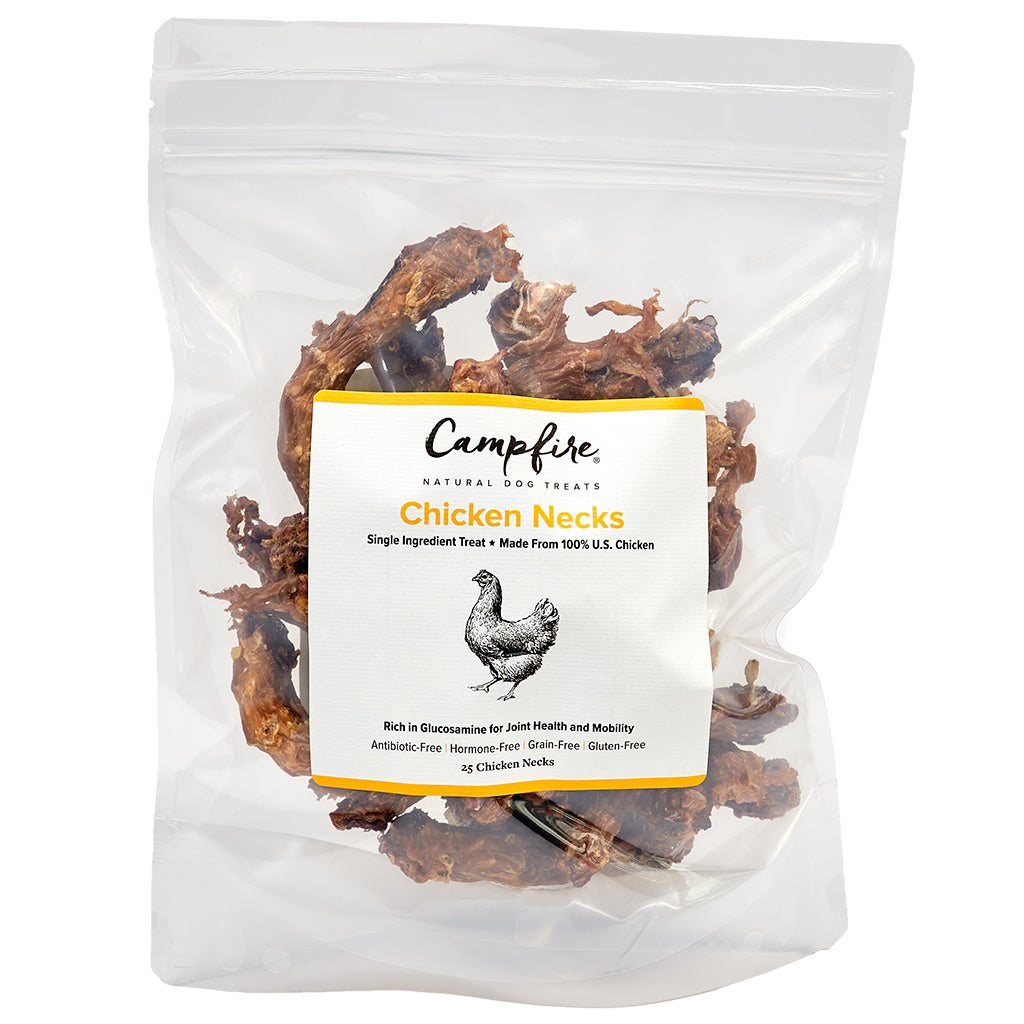
When feeding chicken necks to dogs, it is important to take certain precautions to ensure their safety. One major concern is the choking hazard that the bones present. Chicken necks should always be supervised and sized appropriately for your dog’s size and chewing ability. Additionally, swallowing whole bones can cause intestinal blockages, so it is essential to monitor your dog while they are eating. It is always recommended to consult with your veterinarian or a canine nutritionist for specific guidelines on feeding chicken necks and to ensure they are part of a balanced diet.
Choking Hazard Awareness
Choking Hazard Awareness: It is important to be aware of the choking hazard that chicken necks present to dogs. The bones in chicken necks can become lodged in a dog’s throat, leading to a potentially life-threatening situation. To minimize the risk, always supervise your dog while they are eating and choose chicken necks that are appropriately sized for your dog’s size and chewing ability. If your dog has a tendency to swallow food without chewing or has a history of choking incidents, it is best to avoid feeding them chicken necks altogether.
Overeating And Digestive Issues
Overeating and Digestive Issues: Feeding too many chicken necks to a dog can lead to overeating and digestive problems. Chicken necks are rich in fat, so consuming excessive amounts can cause diarrhea, vomiting, or pancreatitis. Additionally, the bones in chicken necks can be difficult for dogs to digest, leading to constipation or gastrointestinal blockage. It is important to feed chicken necks in moderation and monitor your dog’s response. If you notice any signs of digestive distress, such as bloating or discomfort, consult your veterinarian for guidance.
How To Safely Incorporate Chicken Necks Into Your Dog’s Diet

When incorporating chicken necks into your dog’s diet, it is important to follow some guidelines to ensure their safety and well-being. First, choose chicken necks that are appropriate for your dog’s size and chewing ability. Supervise your dog while they are eating to prevent choking hazards and consider cutting the necks into smaller pieces if necessary. Additionally, it is crucial to maintain a balanced diet for your dog, including other protein sources, vegetables, and grains. Consult with your veterinarian or a canine nutritionist to create a well-rounded diet plan for your furry friend.
Recommended Serving Sizes For Dogs
When feeding chicken necks to dogs, it is important to consider the recommended serving sizes based on their size and chewing ability. For small dogs or puppies, it is advisable to cut the necks into smaller pieces to avoid choking hazards. As a general guideline, small dogs can have one or two chicken necks per day, while larger dogs can have three to four. Always monitor your dog while they are eating and adjust the serving size accordingly to prevent overeating and digestive issues. Consult with your veterinarian for specific serving size recommendations tailored to your dog’s individual needs.
Preparing Chicken Necks For Consumption
To prepare chicken necks for consumption, it is important to handle them safely and ensure they are cooked properly. Start by washing the chicken necks thoroughly under running water to remove any bacteria or contaminants. Cook the chicken necks by boiling, baking, or grilling until they reach an internal temperature of 165°F (74°C) to ensure they are cooked through and safe to eat. Avoid adding any seasonings or spices that may be harmful to dogs. Once cooked, allow the chicken necks to cool before serving to your furry friend. Remember to always consult with your veterinarian for specific guidelines and recommended preparation methods.
Alternatives To Chicken Necks For Canine Health
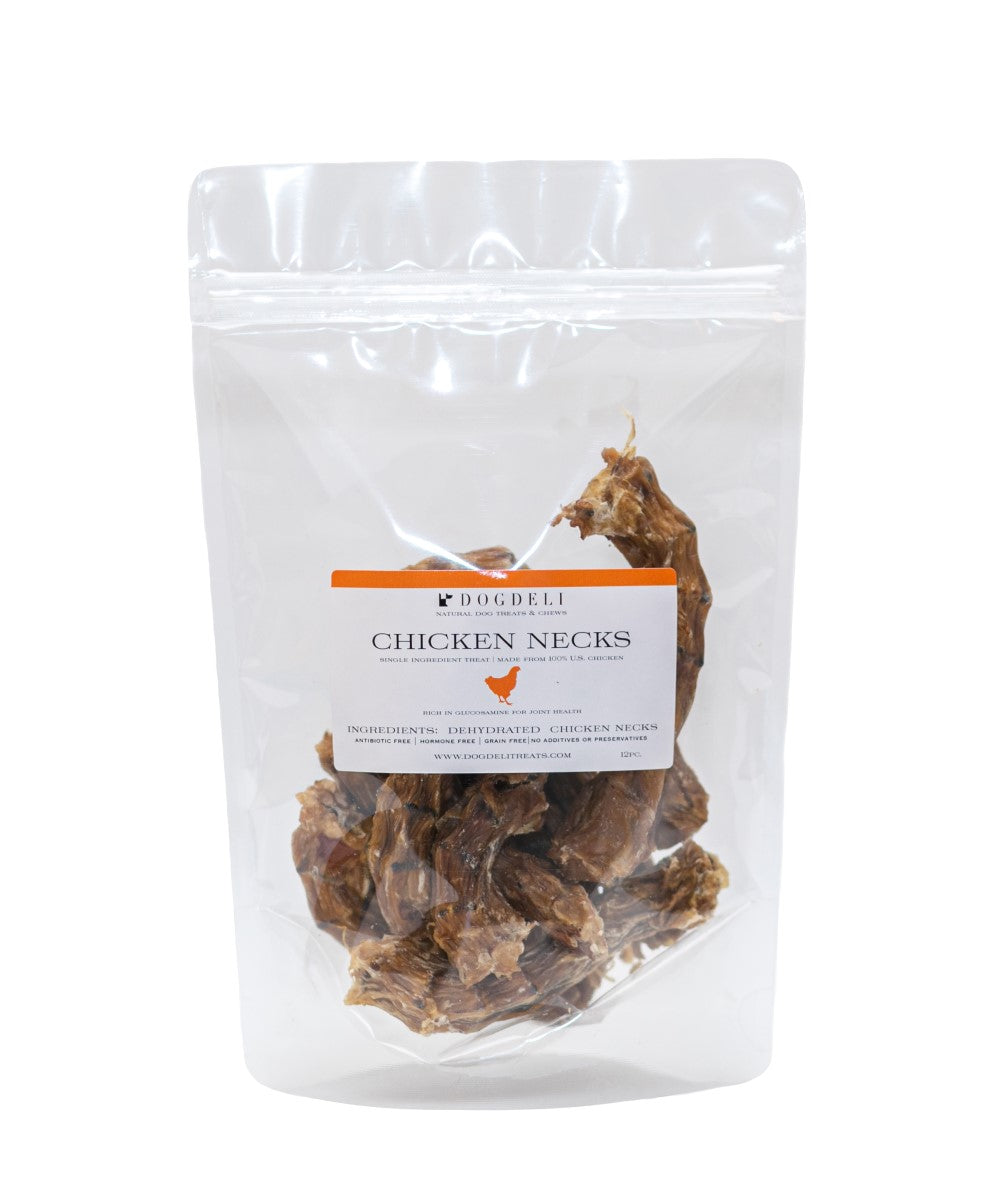
When it comes to providing variety in your dog’s diet, there are several alternatives to chicken necks that can offer similar health benefits. Turkey necks, for example, are a popular alternative that provides a similar texture and chewiness. Other options include duck necks, lamb necks, and beef necks. These alternatives not only provide essential nutrients but also promote dental health and satisfy your dog’s natural chewing instincts. Remember to consult with your veterinarian to ensure that any alternative you choose is appropriate for your dog’s specific dietary needs.
Exploring Other Protein Sources For Dogs
When it comes to providing a balanced diet for your dog, there are numerous protein sources to consider apart from chicken necks. Turkey, for instance, is an excellent alternative that offers similar health benefits. Other options include duck, lamb, and beef, which can provide the necessary protein, vitamins, and minerals for your canine companion. It’s essential to rotate protein sources to ensure your dog receives a variety of nutrients. Consulting with your veterinarian can help you determine the best protein sources and feeding amounts based on your dog’s individual needs.
Balanced Diet Considerations For Canine Nutrition
When considering the overall nutrition of dogs, it is essential to provide them with a balanced diet. This means offering a variety of protein sources, such as chicken necks, along with other essential nutrients. Including fruits, vegetables, and grains in their diet can ensure they receive a wide range of vitamins, minerals, and fiber. Additionally, it is important to control portion sizes to prevent overeating and monitor their weight. Consulting with a veterinarian can help determine the appropriate balance of nutrients and create a customized diet plan for optimal canine nutrition.
Conclusion
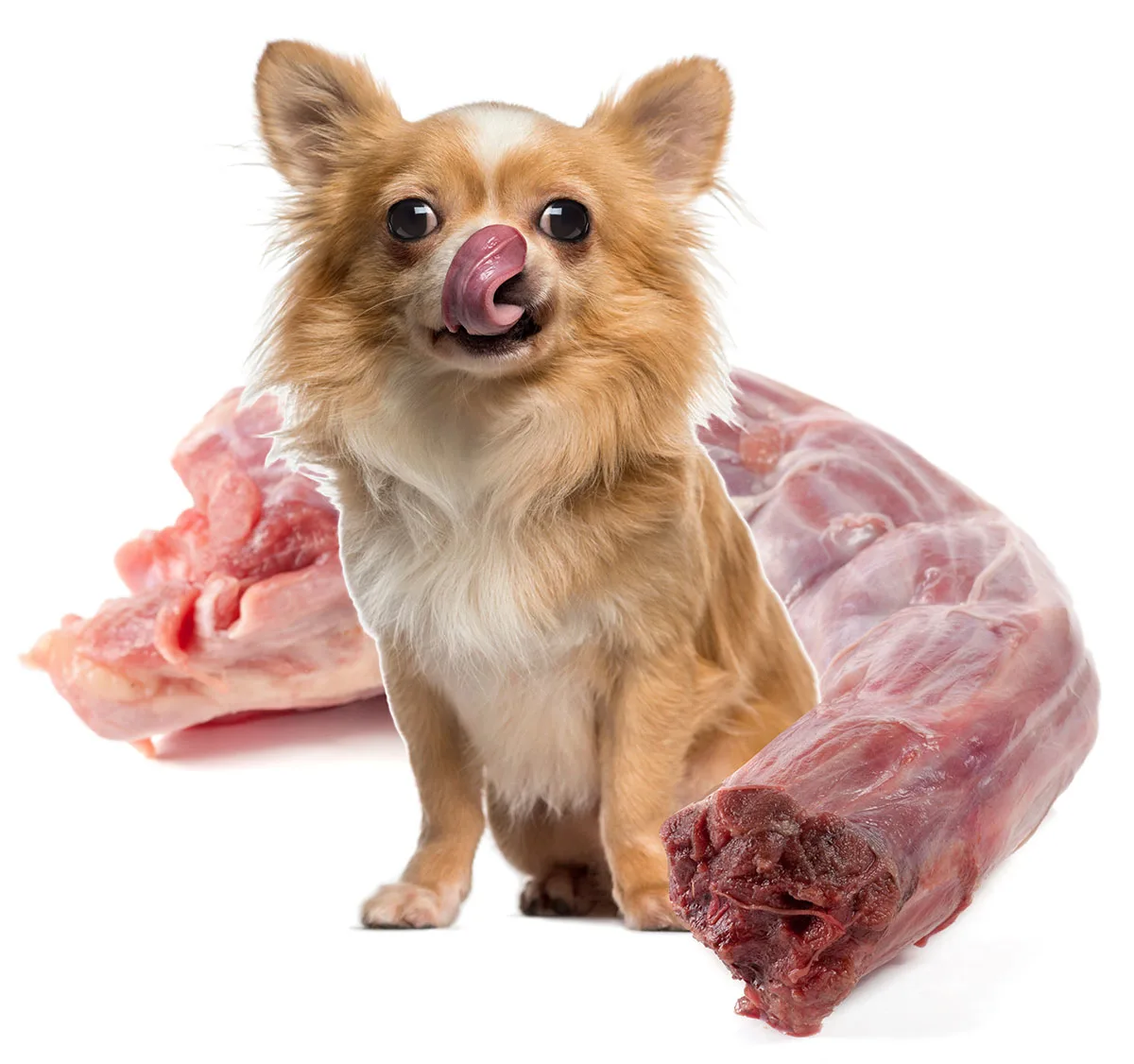
In conclusion, chicken necks can be a nutritious addition to a dog’s diet when fed in moderation and with proper precautions. They offer a range of health benefits, including dental hygiene and essential nutrients. However, it is important to consider them as part of a balanced diet that includes other protein sources, vegetables, and grains. It is crucial to follow feeding guidelines and consult with a veterinarian to ensure the safety and well-being of your furry friend. Overall, chicken necks can be a valuable treat or dietary addition when incorporated responsibly into a dog’s nutrition plan.
Key Takeaways On Feeding Chicken Necks To Dogs
Feeding chicken necks to dogs can be a nutritious and beneficial addition to their diet if done responsibly. Chicken necks offer essential nutrients and can promote dental health in dogs. However, it is important to be cautious of potential choking hazards and monitor portion sizes to avoid overeating. It is recommended to consult with a veterinarian for guidance on incorporating chicken necks into your dog’s nutrition plan. By following these precautions and considerations, you can safely introduce chicken necks as a treat or dietary supplement for your canine companion.
Consulting Your Vet For Dietary Advice
When it comes to making decisions about your dog’s diet, it is always best to consult with your veterinarian for dietary advice. They can provide guidance tailored to your dog’s specific needs and health conditions. Your vet will be able to assess your dog’s current diet, analyze their nutritional requirements, and recommend the appropriate portion sizes and frequency of feeding chicken necks or other foods. They can also help ensure that your dog’s overall diet is balanced and meets their specific nutritional needs. Seeking professional advice from your vet will help ensure that your dog’s diet is safe and beneficial for their overall health and well-being.
FAQ About Chicken Necks For Dogs: Canine Cuisine Considerations
Q: What are the benefits of feeding chicken necks to dogs?
A: Chicken necks are a good source of protein, vitamins, and minerals, and they can help improve dental health by promoting chewing and reducing plaque buildup.
Q: Is it safe for dogs to eat chicken necks?
A: Yes, chicken necks are safe for dogs to eat as long as they are raw and presented in an appropriate size for your dog’s breed and size. Cooked chicken necks can splinter and pose a choking hazard.
Q: How should chicken necks be served to dogs?
A: Chicken necks should be served raw and can be given as a recreational chew or as part of a balanced raw diet. Supervise your dog while they are eating chicken necks to prevent any choking incidents.
Q: Are there any risks associated with feeding chicken necks to dogs?
A: Risks of feeding chicken necks include potential choking hazards, bacterial contamination if not handled properly, and the bones being too small and sharp for some dogs, leading to digestive issues or injury.
Q: How often can dogs eat chicken necks?
A: The frequency of feeding chicken necks to dogs depends on their individual dietary needs and health status. Consult with your veterinarian to determine the appropriate feeding schedule for your dog.
Q: Can all dogs eat chicken necks?
A: Not all dogs may be suitable for eating chicken necks, especially those with dental issues, gastrointestinal sensitivities, or small breeds that may struggle with larger bones. Always monitor your dog while they are eating chicken necks.

Lenoir’s Bistro & Bakery, a charming and chic cafe, has been delighting patrons with an array of delectable delights since its inception. From mouthwatering breakfast bites to succulent burgers and sandwiches and a tempting selection of pasta, sides, and desserts, Lenoir’s Bistro & Bakery is the go-to destination for food enthusiasts seeking a delightful dining experience. Founded by a passionate culinary team with a vision to create a welcoming and stylish eatery, Lenoir’s Bistro & Bakery has seamlessly blended the art of baking with the craft of preparing savory dishes. The result is a menu that caters to diverse tastes and preferences, offering something to satisfy every craving.